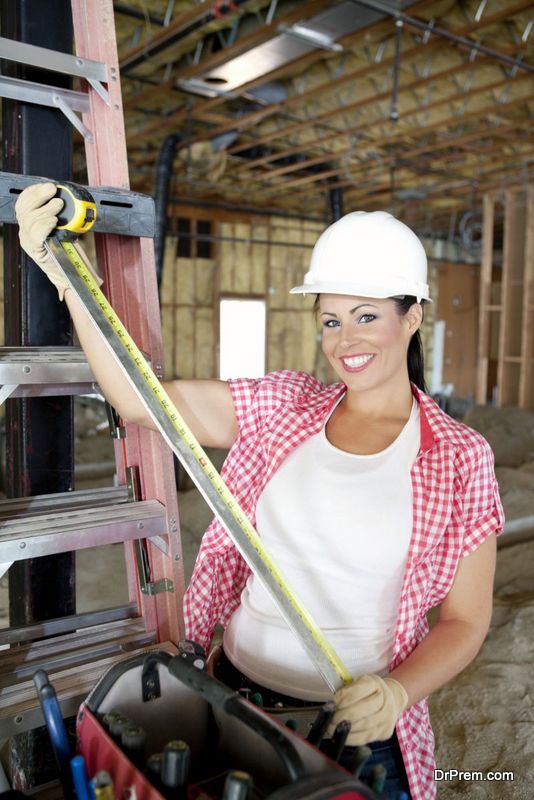When you hire a contractor, you’re not just hiring help. You’re building a relationship – whether you want to or not. A contractor is going to be your go-to guy throughout your home renovation, home improvement project, addition – whatever the project is that you’re working on.
You’re going to have to work closely with your contractor throughout this process – so it’s important that you don’t just think of your relationship as one-way. You have to build a great client-contractor relationship if you want your project to be as successful as possible. And here are 4 simple tips on how to do so.
Know What You Want Before You Start Your Project
The absolute best way for a client to start their relationship with a contractor is by being confident, knowledgeable, and having a great idea of their project’s goals. Being knowledgeable about your own project and being clear with your expected requirements and your desired timeframe is a great way to show your contractor that you’re a competent client.
Contractors have to work with a lot of clients. Some are less knowledgeable and less prepared, and these can be very difficult people to work with. They have unrealistic expectations, are not prepared for hidden costs and delays, or are just generally ignorant of the very basics of their project and its requirements.
You don’t have to be an expert when it comes to your project – after all, that’s what the contractor is for. But you should have a rough idea about your basic requirements and needs. So do your homework on your project – if you find out what the rough costs and timeframe will be, as well as some basics about the process, it will go a long way towards building trust with your contractor.
Sign A Clear Contract – With Provisions For Both Client And Contractor
Large home improvement and remodeling projects often get delayed – and this isn’t always the fault of the contractor. Building materials can be unavailable, unexpected design changes may be needed, and other acts of god may prevent timely completion.
Beyond that, tough clients can also cause delays – if a client refuses to respond to communication in a timely manner, delays implementation of certain projects, or otherwise delays the contractor, it can be very costly indeed.
The contract you sign with your contractor should have provisions regarding delays, unexpected costs, and overall expectations – and it should regard both sides. You should agree to communicate well, attend regular project meetings when required, and have clear methods of arbitration and ways to clear up disputes or disagreements.
You should also make it clear that while you do expect your contractor to finish work in a timely manner, you understand that some delays are simply impossible to expect – and you can build in some time-frame leeway to help your contractor deal with these delays.
If your contract has clear expectations for both yourself and your contractor, you will have a much easier time, building trust. There will be a clear document laying out what is required of each of you – and if you follow it, things ought to go relatively smoothly during your project.
Communicate, Communicate – And Then Communicate Some More
Communication is the basis of all healthy relationships. The fact that you are paying a contractor makes no difference – this relationship is based on communication, not money. Being as easy to find online as punching in, “cabinet maker near me” can make it very easy for a new client to find you. Once you have been found, things like attending meetings when you promise to, being easily accessible by some form of communication like text message, phone, or email, and listening to your contractor are essential when building a great client-contractor relationship.
You’re working together on this project. You have a partnership. Both sides of the partnership must remain in communication about costs, timeframes, and other important aspects of the project, or it can easily fall apart – as can your client-contractor relationship.
Act With Integrity And Understanding
The best laid plans of mice and men often go awry. This is never as true as it is when undertaking a large home improvement or restoration project with a contractor. Delays will happen. Material shortages will happen. Costs may go up, deadlines may slip.
It’s important that you do your best to understand these things. With just a little bit of communication with your contractor it should be easy to tell when a problem or delay is totally out of their hands. Contractors hate this just as much as you do – when they’re delayed, it hurts their profits and their reputation.
So be understanding. If a delay is not the fault of a contractor, try to brush it off. Understand that they aren’t benefiting from this delay somehow, and if they’re acting in good faith, make sure you reciprocate that respect.
A Great Client-Contractor Relationship Can Make A Huge Difference
Building a relationship with a contractor is a slow experience, but doing it right can be essential to having a smooth, stress-free building experience. When you show respect to your contractor – and vice versa – and you communicate openly, effectively, and clearly with them, they will give you the same respect.
And that makes every part of the job a whole lot easier – for both of you. Trust goes both ways, after all. And trust is absolutely crucial in a client-contractor relationship.
Article Submitted By Community Writer






